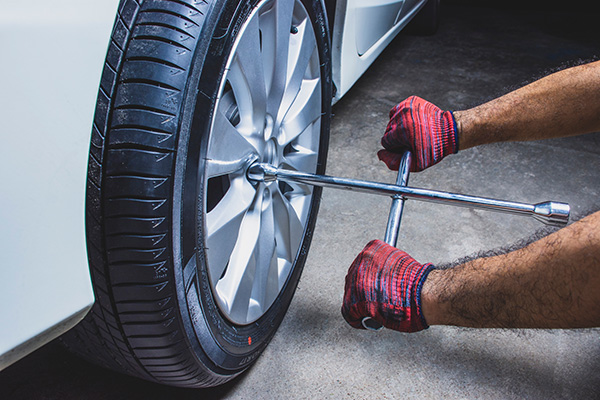
It might not seem like a big deal at first—just one loose lug nut. But even one out-of-place fastener can lead to dangerous consequences if ignored. Your lug nuts are what secure the wheels to your vehicle, and when one—or more—come loose, your safety is on the line.
Whether it’s due to improper installation, vibration from rough roads, or worn threads, loose lug nuts shouldn’t be brushed off. Here’s what can happen if they’re left unchecked while you’re on the move.
The Wheel Can Begin to Wobble
At first, you may not feel anything. But as the wheel starts to shift slightly on the hub, it can cause a subtle vibration or wobble, especially at highway speeds. The more the wheel moves, the more the lug holes in the wheel begin to elongate, and the studs can wear down.
That wobble may feel like a tire out of balance or a warped brake rotor—but the underlying issue could be much more serious. If you're driving around Cromwell, CT and feel an unusual vibration while accelerating or braking, it's time to pull over and check.
Stress on Other Lug Nuts and Wheel Studs
When one lug nut loosens, the remaining ones take on the extra load. Over time, this added stress can cause more nuts to loosen or the wheel studs to stretch or break entirely. A single point of failure quickly becomes a systemic problem.
If a stud snaps while you’re driving, it can shear off others in quick succession—and that can lead to full wheel separation.
Increased Risk of Brake and Suspension Damage
A loose wheel doesn’t just affect the nuts and studs—it puts stress on the brake rotor, caliper, and suspension components too. Misalignment and vibration from a shifting wheel can lead to uneven brake wear, warped rotors, and premature damage to tie rods or control arms.
So while you might think you're just tightening a few nuts, you could be addressing the cause of much bigger repairs down the road if left unresolved.
Total Wheel Detachment Is Possible
This is the nightmare scenario. If the lug nuts continue to back out and the studs fail, the wheel can detach from the vehicle completely—while you're driving.
This is extremely dangerous for you, your passengers, and everyone else on the road. A flying wheel at highway speed can cause major accidents or injuries, and a vehicle suddenly dropping onto its brake rotor can lead to a complete loss of control.
Why Lug Nuts Come Loose in the First Place
There are a few reasons this happens:
- Improper torque: Overtightening or undertightening during wheel installation can weaken studs or allow nuts to loosen over time.
- Worn-out threads: Rust, corrosion, or cross-threading can prevent proper tightening.
- Missing torque checks: After installing new tires or wheels, it's a good idea to recheck torque after 50–100 miles.
- Wheel design issues: Aftermarket wheels with incorrect hub sizes or washers can cause improper seating.
These aren’t hard issues to avoid—but they’re easy to overlook if wheels are installed quickly without attention to detail.
What To Do If You Notice a Loose Lug Nut
If you spot a loose lug nut while your car is parked, don’t assume everything is fine. First, check all the lug nuts to see if more are loose. If just one is off, and the wheel hasn't shifted, you may be able to retorque it properly and be on your way.
But if more than one nut is loose—or if you’ve felt vibrations or noises while driving—it’s best to have the vehicle inspected. There may be damage to the studs or wheel hub, and retightening alone won’t solve the issue.
Driving on compromised hardware is risky, and the cost of towing or a quick check at a trusted shop is far less than the cost of an accident.
Complete Automotive Repair Specialists – Wheel and Safety Checks in Cromwell, CT
If you've noticed a wobble, heard unusual wheel noises, or just want to be sure your lug nuts are torqued correctly, visit Complete Automotive Repair Specialists in Cromwell, CT. We’ll inspect your wheels, torque your lugs to factory specs, and make sure your vehicle is safe to drive.